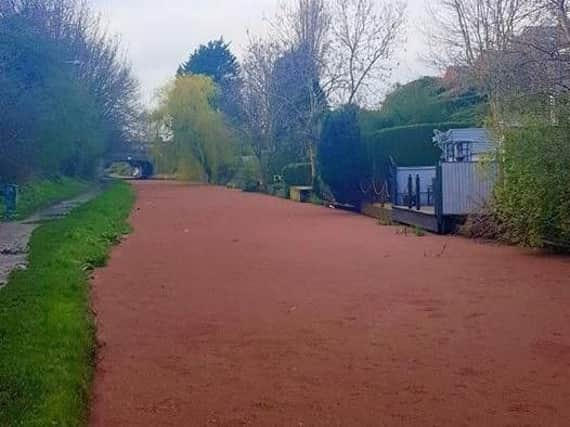This is why a stretch of canal has turned a strange brown colour in Preston


The strange sight led some people to speculate whether a part of Lancaster Canal in Ashton had been polluted.
Dog walkers had also expressed concern at the sudden transformation, with people worried that the canal water could be toxic to their pets.
Advertisement
Hide AdAdvertisement
Hide AdOthers teased that the canal had been filled in and had been secretly turned into a cycle path.


But the Canal & River Trust (CRT), which is responsible for 2,000 miles of canals, including the Lancaster Canal, said the muddy appearance is simply part of the waterway's natural life-cycle.
Speaking to the Post, the CRT said that the brown froth is a 'water fern' and the plant is not harmful to either people or animals.
The plant is called Azolla (Azolla filiculoides) and it is a floating aquatic fern that spreads by stem fragments and spores.
Advertisement
Hide AdAdvertisement
Hide AdIt is an invasive non-native species which initially appears green, like duckweed, but soon turns a red or brown color.
Despite being harmless to both people and wildlife, the plant is difficult to remove and is expected to thrive in the canal until at least May.
This is because the plant's natural predator is the weevil, a beetle-like insect that feasts on the fern during Spring.
A spokesman for CRT said: "The plant normally dies back in winter but due to the relatively warm conditions over the last few months, this hasn’t happened this year.
Advertisement
Hide AdAdvertisement
Hide Ad"Trust ecologists are aware of the problem and will be employing the usual control methods to try and remove it.
"This involves a biocontrol agent – basically a certain type of insect that eats the plant.
"As with all natural vegetation management, solutions are often not quick and easy, and unfortunately these insects are not available until May.
"However, we will get on top of the problem this spring and hopefully return the canal to clearer water again for the summer.”